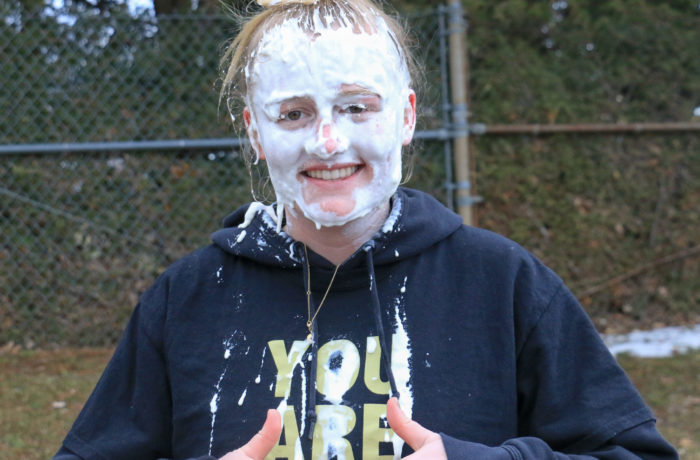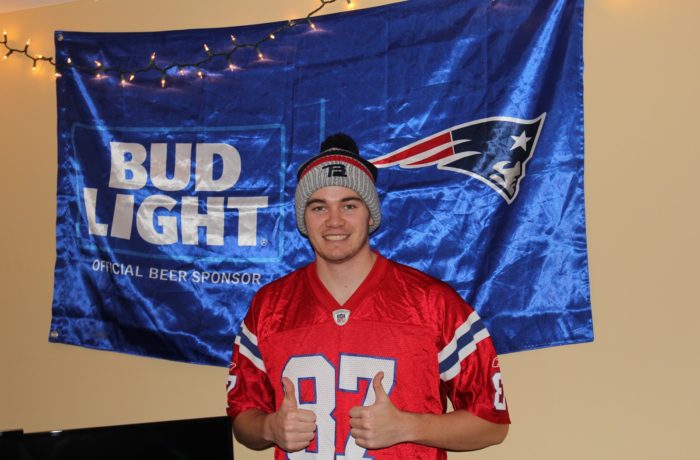By Katherine Martin
Politics Editor
Robert Carter ’19* and his housemates typically bet once a week on a sports game as a group. Using an on-campus bookie to make one bet, they agree on what the outcome will be and go in together. A bookie is someone who takes bets, calculates the odds and pays out winnings. They are like the ‘house’ in a casino.
“We only risk five dollars each,” said Martin Sloan ’19. “We usually lose but the payoff would be really big. It’s kind of like buying a scratch ticket.”
In May 2018, the Supreme Court issued a decision reversing the 1992 ban on gambling on sporting events. States can now offer legal sports betting once they create and approve regulations. However, not all states have taken action.
Nevada, Delaware, New Jersey, Mississippi, West Virginia and New Mexico have full-scale legalized sports betting. Pennsylvania, Rhode Island, New York and Arkansas have recently passed bills. Vermont, on the other hand, has shown no interest in legalizing sports betting.
“Sports betting is illegal?” Carter asked, “That’s good to know.”
Although Vermont has not made any moves towards legalizing sports betting, students don’t seem to be bothered.
“One time when I went to use DraftKings (an online sports betting site), it wouldn’t let me register from Vermont so I just said that I resided in Massachusetts,” said James Harkin ’18.

While sports betting is becoming increasingly popular among college students, the gambling industry and ESPN are benefiting from the accessibility of online gambling. People are watching entire sports games, even when the winning team is seemingly obvious. People can bet not only on the team that will win, but on the number of points they will win by. This makes blowout games more engaging. “It’s for entertainment more than anything,” Sloan said. “You just want something to root for. There could be a game no one would care about otherwise but then you throw money [in] and you have something to watch.”
But some students who begin to gamble in college take a risk of developing a lifelong habit. “Because of online technology you can bet on five thousand different games in one day if you wanted to. You just click, click, click,” said Rick Barnett, a psychologist and a licensed drug abuse counselor in Stowe, Vt.
While some students choose to put in money as a group, others are making individual bets on their own.
“I wasn’t doing that many, like three, four a week,” said Timothy Nichols ‘18. “My first one of the week I do just ten dollars and see if I can make it back to use it later in the week if I want to. And if I lose the first two I won’t do any more that week… I will probably gamble after college but not in a degenerate fashion to the point where I rely on it. It’s more of a recreational thing at school because we don’t have to worry about paying for so many things.”
Behind the screen
With the recent change from illegal to legal betting, college students are joining the world of gambling around sports in larger numbers. For some it’s simply entertainment, but for others, it becomes the beginning of a lifelong, dangerous addiction.
Part of the allure, and the danger of online gambling is its invisibility, according to Barnett. “How do you know that Jon over here is having fun with it every weekend and not overspending and Dave over here is overspending and draining his parents’ bank account?”
Out of all the people who have gambled, which includes everything from raffle tickets to sports betting and casinos, one to two percent of those people will go on to develop a gambling disorder, Barnett said.
Although gambling has the lowest percentage of addicts among addictions, the suicide rate is five times higher than any other addiction, including alcoholism. The impact gambling can have on other areas of the addict’s life can be devastating, said Barnett. Gambling often comes with financial burdens which often impacts one’s family.
So while students have a low risk of developing a gambling problem, the results can be fatal. People who have a gambling problem more often than not have some other mental health condition that is not being addressed.
“People don’t come to treatment for gambling. It’s a hidden addiction, it’s a pure addiction it’s an invisible addiction and it’s the one addiction that is predicated on hope,” Barnett said.
“That’s what drives the addiction in some ways–the anticipation of a big winning. A lot of gamblers know… they’re not in it for the win, they’re in it for the chase.”
Through working with Problem Gambling Vt., an online resource for counseling and support, Barnett knows that while about ten thousand people in Vermont may be struggling with a gambling disorder, their hotline receives about three calls a month. “Have I ever tried to stop? Every time I lose,” Sloan laughs with his friends. “You go up a little bit and you lose and you’re like alright I’m done for a month and a half.”
Signs of an addict
While most students will go on to discontinue gambling or continue to gamble in healthy ways, there are things to look out for in gamblers as well as ways to avoid problem gambling. Any area of an addict’s life that is being impacted because of their gambling will show that they have a problem. This can include their emotional, social, physical, financial, legal or vocational life.
Barnett and his colleagues at CARTER (a center for addiction, recognition, treatment, education, and recovery) advise adults not to buy young kids scratch tickets. Because kids don’t understand money and reward, scratching a ticket and instantly winning large sums of money can leave an imprint on the brain early in life, Barnett said.
Similarly, Candy Crush and other gaming apps that are set up like slot machines are gateways for people to play slots. Most ads on these gaming apps are for online casinos.
“There is actually a lot more entry into gambling for women through smartphones and playing with free money. I think that technology absolutely fuels some people,” Barnett said. “However, I do believe that no matter what they do with technology, no matter how accessible it is and no matter how many people play, there still is only going to be a small percentage of people that go on to develop problems.”
Resource
If you have a gambling problem and want to seek help, call or text Problem Gambling Vermont at 1-800-522-4700
*Names changed for anonymity.


